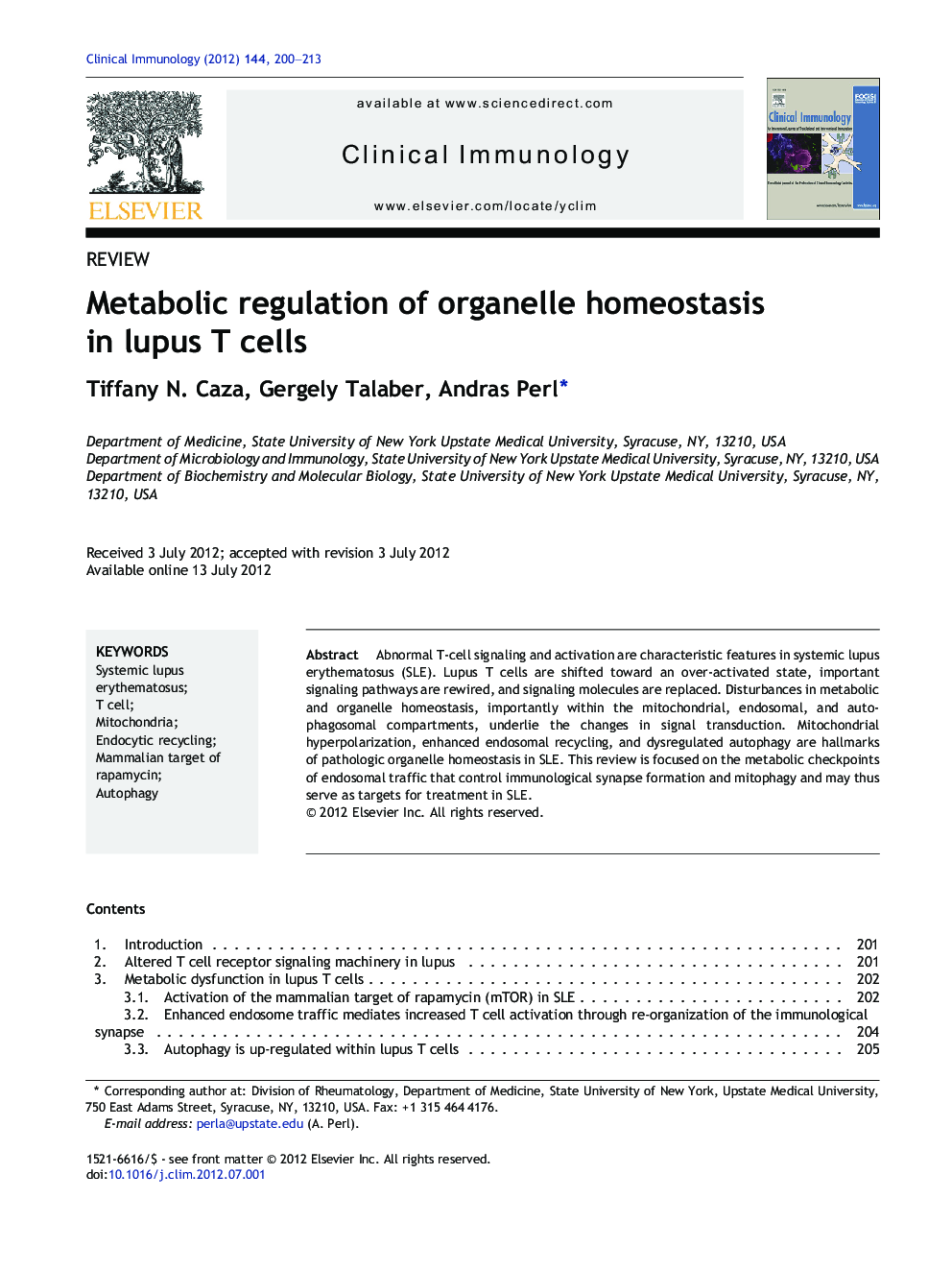| Article ID | Journal | Published Year | Pages | File Type |
|---|---|---|---|---|
| 3257032 | Clinical Immunology | 2012 | 14 Pages |
Abnormal T-cell signaling and activation are characteristic features in systemic lupus erythematosus (SLE). Lupus T cells are shifted toward an over-activated state, important signaling pathways are rewired, and signaling molecules are replaced. Disturbances in metabolic and organelle homeostasis, importantly within the mitochondrial, endosomal, and autophagosomal compartments, underlie the changes in signal transduction. Mitochondrial hyperpolarization, enhanced endosomal recycling, and dysregulated autophagy are hallmarks of pathologic organelle homeostasis in SLE. This review is focused on the metabolic checkpoints of endosomal traffic that control immunological synapse formation and mitophagy and may thus serve as targets for treatment in SLE.
► Organelles, such as endosomes and mitochondria, regulate T cell activation. ► Endosomes recycle surface receptors that transmit signals from the T-cell receptor. ► Endosome controls traffic of proteins and organelles for disposal via autophagy. ► Mitochondria control T-cell activation and death. ► Organelle dysfunction represents target for treatment in SLE.
